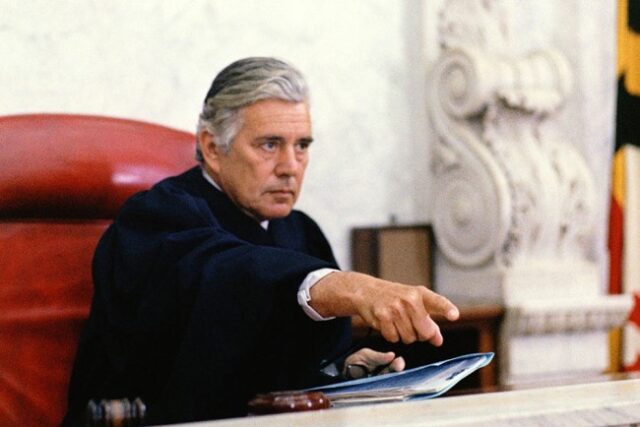John Proctor is one of the most complex and memorable characters in Arthur Miller’s classic play, The Crucible. Set during the Salem witch trials of the late 17th century, Proctor stands as a symbol of integrity, strength, and tragic flaw. His journey through the play reflects the challenges of maintaining one’s moral compass in the face of societal hysteria and personal shame. In this article, we will dive deep into the character of John Proctor, exploring his role in The Crucible, his significance as a tragic hero, and his lasting legacy in literature and popular culture.
Understanding the Historical Context
Before delving into John Proctor’s character, it’s essential to understand the historical background of The Crucible. Arthur Miller wrote the play in 1953, during a period of American history known as the Red Scare. The play, though set during the Salem witch trials of 1692, was an allegory for the McCarthyism of the 1950s. During this time, Senator Joseph McCarthy spearheaded a campaign to root out suspected communists, leading to widespread paranoia, accusations, and ruinous trials. In The Crucible, the witch hunts mirror the anti-communist sentiment of the time, making John Proctor a stand-in for individuals who were unjustly persecuted.
The real John Proctor was a Salem farmer who, along with others, was executed after being falsely accused of witchcraft. Miller’s depiction of Proctor borrows from this historical figure, but the play embellishes and dramatizes his character for thematic purposes.
John Proctor: The Tragic Hero
John Proctor is often viewed through the lens of a tragic hero, a literary figure who possesses a fatal flaw that leads to their downfall. Aristotle, the ancient Greek philosopher, defined a tragic hero as someone of noble stature who is flawed by hamartia, usually hubris, leading to their eventual demise. In Proctor’s case, his fatal flaw is his internal struggle with guilt and his obsession with maintaining his reputation.
Proctor’s Guilt
At the heart of John Proctor’s internal conflict is his guilt over an affair with Abigail Williams, one of the play’s central antagonists. Abigail, a young woman who once worked in Proctor’s household, harbors a deep resentment towards his wife, Elizabeth, and seeks to rekindle her romance with John. This affair becomes a pivotal point in the narrative, as Proctor’s guilt shapes many of his decisions throughout the play.
Proctor’s relationship with Abigail is not just a mistake of passion but represents a larger moral failing that haunts him. His guilt over this affair drives much of his behavior and informs his attempts to make amends, particularly with Elizabeth. His struggle with this guilt embodies the larger themes of sin, redemption, and personal responsibility that are at the core of The Crucible.
Proctor’s Struggle with Reputation
John Proctor’s preoccupation with his reputation is another key aspect of his tragic nature. Throughout The Crucible, Proctor is constantly aware of how his name and legacy will be perceived by the town of Salem. In Act 4, when he is given the chance to save himself from execution by falsely confessing to witchcraft, Proctor hesitates. The climactic moment when Proctor chooses to maintain his integrity, even at the cost of his life, is one of the most powerful in the play.
Proctor’s line, “Because it is my name! Because I cannot have another in my life!” encapsulates the importance of personal honor to his character. His decision to die rather than sign his name to a lie reflects the culmination of his internal journey, where he finally accepts the importance of truth over public perception.
Proctor’s Relationships with Key Characters
John Proctor’s relationships with the other characters in The Crucible are integral to understanding his complexity. His interactions with Elizabeth Proctor, Abigail Williams, and Reverend Hale are particularly noteworthy, as they highlight different facets of his character.
Elizabeth Proctor
Elizabeth is John’s wife, and their strained relationship is a significant element in the play. Elizabeth’s coldness and suspicion towards John stem from his affair with Abigail, and this distance between them plays a role in John’s sense of guilt. Despite their challenges, Elizabeth’s love for John is evident, particularly in the final act when she refuses to pressure him into confessing to a crime he did not commit. Elizabeth’s forgiveness of John and his redemption in her eyes are critical to his final sense of peace.
Abigail Williams
Abigail Williams is the catalyst for much of the action in The Crucible, and her manipulation of the Salem witch trials directly leads to John’s downfall. Abigail is in love with Proctor and is willing to go to great lengths, including accusing Elizabeth of witchcraft, to try and win him back. Proctor, however, rejects her advances and admits to the affair, knowing it will tarnish his reputation. His decision to confess the affair in court is a turning point in the play and marks the moment where he fully commits to the path of truth, no matter the cost.
Reverend Hale
Reverend Hale is another character with whom Proctor has a complex relationship. Hale begins the play as a firm believer in the righteousness of the witch trials, but as events unfold, he becomes increasingly disillusioned. Proctor’s resistance to the hysteria surrounding the trials plays a key role in Hale’s transformation. By the end of the play, Hale is begging Proctor to confess to save his life, but Proctor refuses, opting instead to stand by his principles.
Themes Embodied by John Proctor
John Proctor’s character serves as a vehicle for several of the central themes of The Crucible. His journey from guilt to redemption is tied to larger ideas about truth, integrity, and moral courage.
The Conflict Between Individual Morality and Public Pressure
One of the most significant themes that Proctor’s character illustrates is the conflict between individual morality and societal expectations. Throughout the play, the people of Salem are driven by fear and mass hysteria to accuse one another of witchcraft. Proctor, however, resists the pressure to conform to these destructive norms, even though it costs him his life. His steadfastness in the face of overwhelming social pressure underscores the importance of personal integrity, a theme that resonates deeply in the context of both the Salem witch trials and the McCarthy era.
Redemption and Forgiveness
Proctor’s journey is also one of redemption and forgiveness. At the beginning of the play, he is weighed down by his guilt over the affair with Abigail. By the end, however, he achieves a kind of moral redemption by choosing to die with his integrity intact. Elizabeth’s final words to Proctor, “He have his goodness now. God forbid I take it from him,” reflect the profound sense of peace and forgiveness that accompanies his ultimate sacrifice.
The Destructive Power of Lies
Another theme that Proctor’s character highlights is the destructive power of lies. In The Crucible, false accusations and deceit are the tools by which the characters manipulate one another and fuel the hysteria that consumes Salem. Proctor’s affair with Abigail is itself a lie, one that sets the stage for much of the chaos that ensues. His refusal to further propagate lies by signing a false confession is what ultimately leads to his death, but also what redeems him in the eyes of both the audience and his wife.
John Proctor’s Legacy in Literature and Culture
John Proctor’s character has left a lasting legacy in literature and popular culture. As one of Arthur Miller’s most iconic creations, Proctor has been the subject of countless academic analyses, theatrical productions, and adaptations. His story continues to resonate with audiences today because of its timeless exploration of themes such as integrity, truth, and moral courage.
Proctor as a Symbol of Integrity
In many ways, John Proctor has come to symbolize the struggle for integrity in the face of overwhelming societal pressure. His decision to prioritize truth over self-preservation is a powerful statement about the importance of standing by one’s principles, even when the consequences are dire. This aspect of Proctor’s character has made him an enduring figure in discussions of moral courage, particularly in contexts where individuals are asked to sacrifice their integrity for the sake of expediency or conformity.
Influence on Modern Tragic Heroes
Proctor’s character has also influenced the development of modern tragic heroes in literature and film. His internal conflict, fatal flaw, and eventual redemption are hallmarks of the tragic hero archetype, which continues to appear in contemporary storytelling. Characters in modern drama and cinema often echo the complexity and depth that Miller imbued in John Proctor, making him a lasting influence on the genre.
Conclusion
John Proctor stands as one of the most compelling tragic heroes in American literature. Through his moral struggle, his confrontation with guilt, and his ultimate redemption, Proctor embodies the themes of integrity, truth, and personal responsibility. The Crucible uses his character to explore the dangers of hysteria and the importance of standing by one’s beliefs, even in the face of death. As a symbol of moral courage, John Proctor’s legacy continues to inspire and challenge readers and audiences alike. His story reminds us that integrity is not always easy, but it is always worth fighting for.



MOST COMMENTED
Business
World Politics News: Geopolitical Analysis for Strategic Decision-Makers
Business
World News Headlines: Global Developments Impacting Business and Policy
Business
Top World News Stories: What’s Shaping the Globe Today?
World News
Global News Updates: Stay Informed with Key Events
Crypto
“Current World News: Major Stories of 2025”
Crypto
Be1crypto.com Markets is a cryptocurrency trading platform designed to cater to both novice and experienced traders. It offers a user-friendly interface, a wide range of supported cryptocurrencies, advanced trading tools, and robust security measures. The platform aims to provide a seamless trading experience, allowing users to diversify their portfolios and engage in various trading activities.
World News
Chrisley Knows Best Daughter Dies: Unraveling the Truth Behind the Rumors